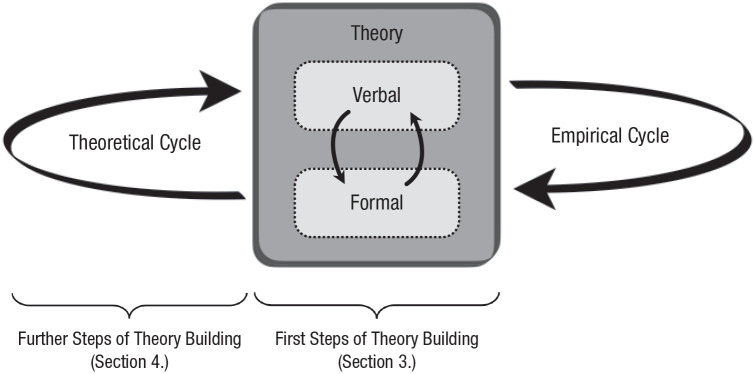Fig. 1.
The empirical cycle is familiar to most psychological scientists: The received view is that our science progresses by postulating explanatory hypotheses, empirically testing their predictions (including, but not limited to, effects), and revising and refining the hypotheses in the process. Explanatory hypotheses often remain verbal in psychological research. The first steps of (formal) theory building include making such verbal theories formally explicit. In the process of‘ formalization the verbal theory may be revised and refined. Theory building does not need to proceed with empirical testing right away. Instead, theories can be subjected to rigorous theoretical tests in what we refer to as the theoretical cycle. This theoretical cycle is aimed at endowing the (revised) theory with greater a priori plausibility (verisimilitude) before assessing the theory’s empirical adequacy in the empirical cycle.

